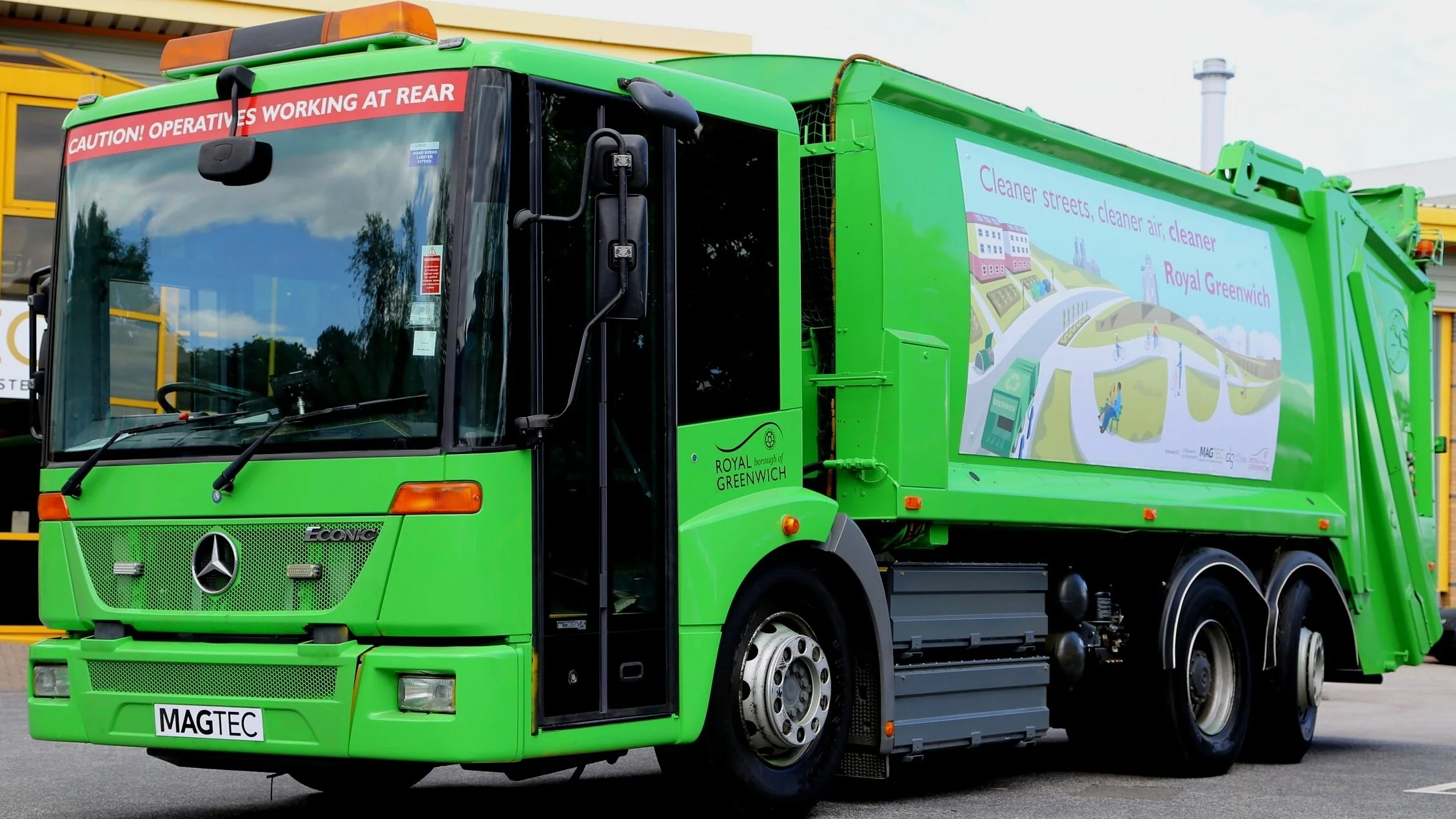As part of Project Endeavour, DG Cities conducted an online survey with members of the public to understand their views on AVs and AV Ride-Sharing Services. We’re pleased to share the results of this survey in our Public Attitudes and Perceptions of Autonomous Vehicles and Ride-Sharing Report. This report provides a pre-COVID19 baseline of data which will enable Project Endeavour to map changing trends over time.
Making the business case for repowering fleets
Today, we’re excited to publish a new Social & Environmental Business Case Report for repowering fleets. This report helps local authorities and fleet providers take the most cost effective and sustainable approach when transitioning their fleets from diesel to electric. Unlike other similar and existing research, the costs and environmental emissions highlighted in this report are based on real-time data collected from the operation of the refuse vehicles, making this piece of research the first of its kind.
Are Cities Ready for a fleet-led EV revolution?
Could Bin Lorries Power Our Cities?
Earlier this week we looked at the work we’ve done as part of the eRCV project, to repower bin lorries. But what could this mean for our cities? Well the UK currently has between 12-14,000 refuse collection vehicles (RCVs), making daily rounds in the neighbourhoods they serve to collect the rubbish left outside the 23 million homes we live in. And apart from a handful of trial projects like eRCV, all these vehicles are running on diesel, contributing to pollution and CO2 emissions. But we think in the next phase of their evolution they could be part of a holistic solution against climate change.
How Waste Collection Can Be A Force for Environmental Change
Pandemic travel behaviour: designing future mobility solutions that are COVID secure
One of the immediate impacts of COVID-19 on urban centres has been the significant change in public transport usership as citizens have moved away from public transport into cars, onto bicycles or towards walking as a method of getting from A to B. Whilst some of these shifts may at first appear temporary there is a risk that some of the more negative modal shifts (e.g. into private cars) could linger. A negative shift in public transport attitudes and behaviours of this type could be hugely disruptive to city leaders already struggling to both meet stretching greenhouse gas emissions targets, and improve the experience of citizens who are using city roads.
Cities and COVID-19: looking at the long-term effects of the pandemic
It’s the beginning of September and parents across the UK are experiencing the back-to-school period like never before. Not only are children and young people across the country tentatively returning to school after a considerable time away, so too are many workers who have been at home since March. This summer was a summer like no other and many will no doubt find comfort in a return that bears some semblance of normality. But do we want every aspect of pre-Covid work to return? No doubt many will have enjoyed swapping four-hour commutes, and soul-less office complexes for more time with the family, and the opportunity to choose where and how to work. The old norms of offices stacked high and packed commuter trains in many ways does feel antiquated and there has been an increasing rhetoric around workers wanting to retain new practices instead of giving them up. At DG Cites we are experienced in identifying and exploring the impacts of trends and change, so we thought we would take a look at some of the insights and likely implications around COVID-19.
Urban Innovation at the Front Line: July at DG Cities
Building Smart and Sustainable Cities through Citizen Engagement
As a researcher the opportunity to work on truly innovative projects is too good to pass up. And from my first few weeks with the DG Cities family (that’s exactly what the wonderful team is like) I’ve already been immersed in some exciting, challenging and potentially transformational projects. Projects which will not only help to bring the newest technology into the hands of citizens, but will also work to make the cities in which they live cleaner, greener, and more liveable for generations to come.
Urban Innovation at the Front Line: April at DG Cities
Introducing Project D-RISK
Thoughts in the time of COVID-19
When I first started typing this blog what I had intended to talk about was how we break down siloed thinking to look at the city more holistically, and consider the ultimate needs of its residents.
That’s something I could still easily write as, during this Covid-induced period of social distancing and isolation, I’m one of those people who is lucky enough to be able to take my work home, to a relatively safe and comfortable environment. I can continue to plough on in a virtual world; but there are others who, on a daily basis, are leaving their homes to go about their roles and try to keep the services we rely on, running.











